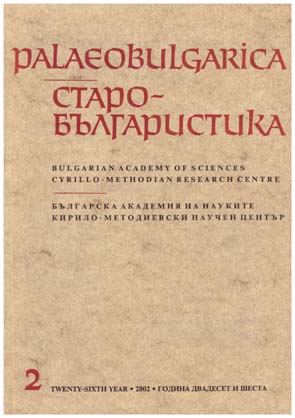Името Карвуна и прабългарите
The Name Karvuna and the Proto-Bulgarians
Author(s): Pavel GeorgievSubject(s): Language studies
Published by: Кирило-Методиевски научен център при Българска академия на науките
Summary/Abstract: Karvuna is a regional and settlement name, recorded in the sources in the 11th century at the earliest. It is believed that its origin is Greek. The comparison of domestic and foreign sources leads the author to the conclusion that the name is of Proto-Bulgarian origin and is a combination of *Kar- and -vuna. The second component has been given the meaning by Slavonic and Greek authors as “hill, tumulus” but in the Turko-Bulgarian language it had the meaning of the numeral “hundred” (on>un>vun), as in the name of the original settlement of Khan Asparuh beyond the Danube: Onglos which means “Hundred Rivers” (=On gol) and where also was recorded the toponym Stomogilie (Hundred Hills). After 680, with the occupation or building of numerous earth and other strongholds and cities, the name земя Карвоунска consolidated in the chronological tradition as “land of the hundred (=many) strongholds” i. e. “fortified land” and that was filly in the spirit of the semantic of the Bulgarian ethnonym Unogunduri”. It was only later that the principal of the centres of this “land” received a homonymous name which in Turko-Bulgarian sounded *Qar(a) vuna, i.e. “The main fortress-city”, and in Greek Καρβούνας.
Journal: PALAEOBULGARICA / СТАРОБЪЛГАРИСТИКА
- Issue Year: 2002
- Issue No: 2
- Page Range: 70-82
- Page Count: 13
- Language: Bulgarian
- Content File-PDF

